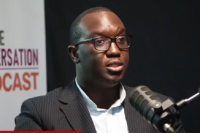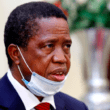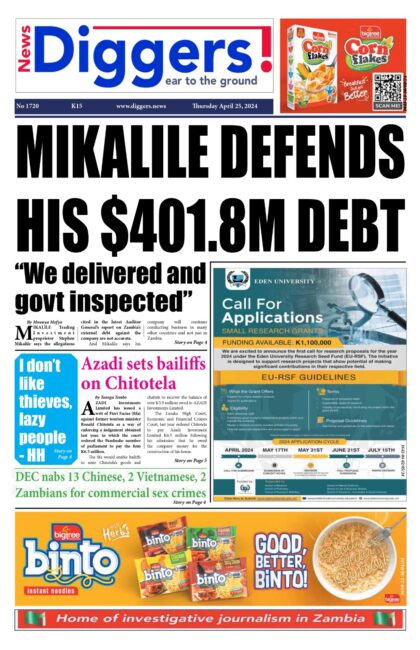Supreme Court, High Court and Magistrate Court registrars who are representing the judiciary in the Constitution Amendment Bill consultation process have submitted to the parliamentary select committee that the period for determining a presidential election petition should be extended from 14 to 45 days and not 30 days as proposed in the Bill.
The judiciary’s move comes despite concerns from other governance stakeholders who recently said it would be wrong for judges to make their opinions around Bill 10 known to the public while at the same time presiding over a court matter in which the Law Association of Zambia is challenging the alteration to the Constitution using this process.
Making submissions before the parliamentary select committee on Bill 10 in Lusaka, Wednesday, through acting Supreme Court registrar Prince Mwiinga, High Court registrar for chambers Arida Chulu and her High Court counterpart Paul Chisha as well as their subordinate court representative Twaambo Musonda, the judiciary also opposed the deletion of the office of the Constitutional court president.
“We note that Clause 30 seeks to replace Articles 102, 102, 103, and 104 of the Constitution of Zambia. It seeks to, among other reasons, substitute Article 103 (2) with the following provision; ‘The Constitution Court shall hear and determine an election petition filed in accordance with Clause (1) within 30 days of the filing of the petition.’ Our submission is that chair, 30 days period for hearing and determining presidential election petition as proposed in the bill is too short and should be extended to 45 days. We submit that 45 days would be the more realistic and realistic compromise. Coming from the background of where we are coming from, we note that while 30 days is an improvement from the 14 that initially was there, still 30 days is not enough [because] we are dealing with an election petition that involves the office of the presidency whose constituency is the entire country. The volume of work that is involved chair, we feel 45 days will be more realistic to determine a matter of that nature,” Chisha said.
And Chisha said it is the judiciary’s view that Article 138 of the current Constitution be maintained because repealing it would mean deleting the office of the ConCourt president.
“Chair, we note here that the proposed Article 127 recognises the office of the president of the Constitutional Court. And Clause 45 of the Bill repeals Article 138 of the Constitutional Court which substantiates that office. You will note chair that Clause 43 of the Bill does attempt to repeal Article 127 of the Constitutional Amendment Act number two of 2016. That Article chair establishes the Constitutional Court and also deals with its composition. When you look at the clause that is supposed to be the new Article 127, whose composition now includes the chief justice, you move from there and go to Article 45 of the Bill which effectively seeks to repeal Articles 138 and 139 of the current Constitution,” he said.
“If that goes ahead, we are actually doing away with the office of the president of the Constitutional Court. Meanwhile, in Article 127 as contained in Bill 10 of 2019, we still recognize the existence of the president of the Constitutional Court. We submit chair that at law, it’s not tenable to do away with an office when in fact there is an incumbent. So we submit that Article 138 of the current constitution be maintained. We have no problem with Article 139 because it creates the office of the deputy president of the Constitutional Court and we don’t have an incumbent.”
And Chisha further proposed that the constitution should completely do away with the 10-year limitation for the tenure of office for the Chief Justice.
“Clause 47, chair, you will note that the only deletion that has been there relates to the president of the Constitutional Court, leaving the provision of limiting the tenure of office of the chief justice intact, to not more than ten years. We submit chair that we should just do away completely with the limitation of tenure of office to a period of ten years for the following reasons chair; we hold the view that it will definitely deprive the judiciary and the nation at large of not only invaluable but also tested and proven leadership of a particular person who will be holding the office of chief justice and then they have clocked the ten-year limit but they still have years to go. We are of the view and humbly submit that why don’t we remove that limitation? We don’t see it seating proper for a Constitutional office. Such would probably sit properly for an elective office,” he said.
“Further chair, for a Chief Justice who has had assumed such a higher office, to come and assume the position of junior judge is quite demeaning. You had high office and then you come and serve as junior officer on the bench. It is just as good as a demotion. We [also] humbly submit that the Judicial Service Commission remains as it is, as a commission established under the Constitution.”
And Chisha said the judiciary should be fully funded instead of adequately being funded, arguing that what the executive might consider adequate could be insufficient.
“We proceed to Article 123 (2) which we restate that the judiciary should be fully funded as opposed to the term ‘adequately funded’ in a financial year. We state that because the term adequately is subjective. What would be adequate of the executive may be may not be adequate to the judiciary. So the term ‘fully’ should replace ‘adequately’,” Chisha said.
Meanwhile, Chulu explained that 45 days for anything more than six days for hearing presidential election petition was inclusive of weekends.
“As for 45 days, anything above six (06) days means the weekends are included. [So] the 45 days includes the weekends,” said Chulu.
The judiciary representatives expressed gratitude that they were given an opportunity to make submissions to Parliament on Bill 10.
“We are actually glad that we were invited by the National Dialogue Forum where we made submission [but] these were not taken into account. We also submitted at Siavonga where we had experts to propose the amendment of the Constitution [and] these were not taken. But now we are taking advantage that chair, your house considers these particular submissions,” they stated.













One Response
I agree with the removal of tenure of office for the chief justice as submitted and reasons advanced